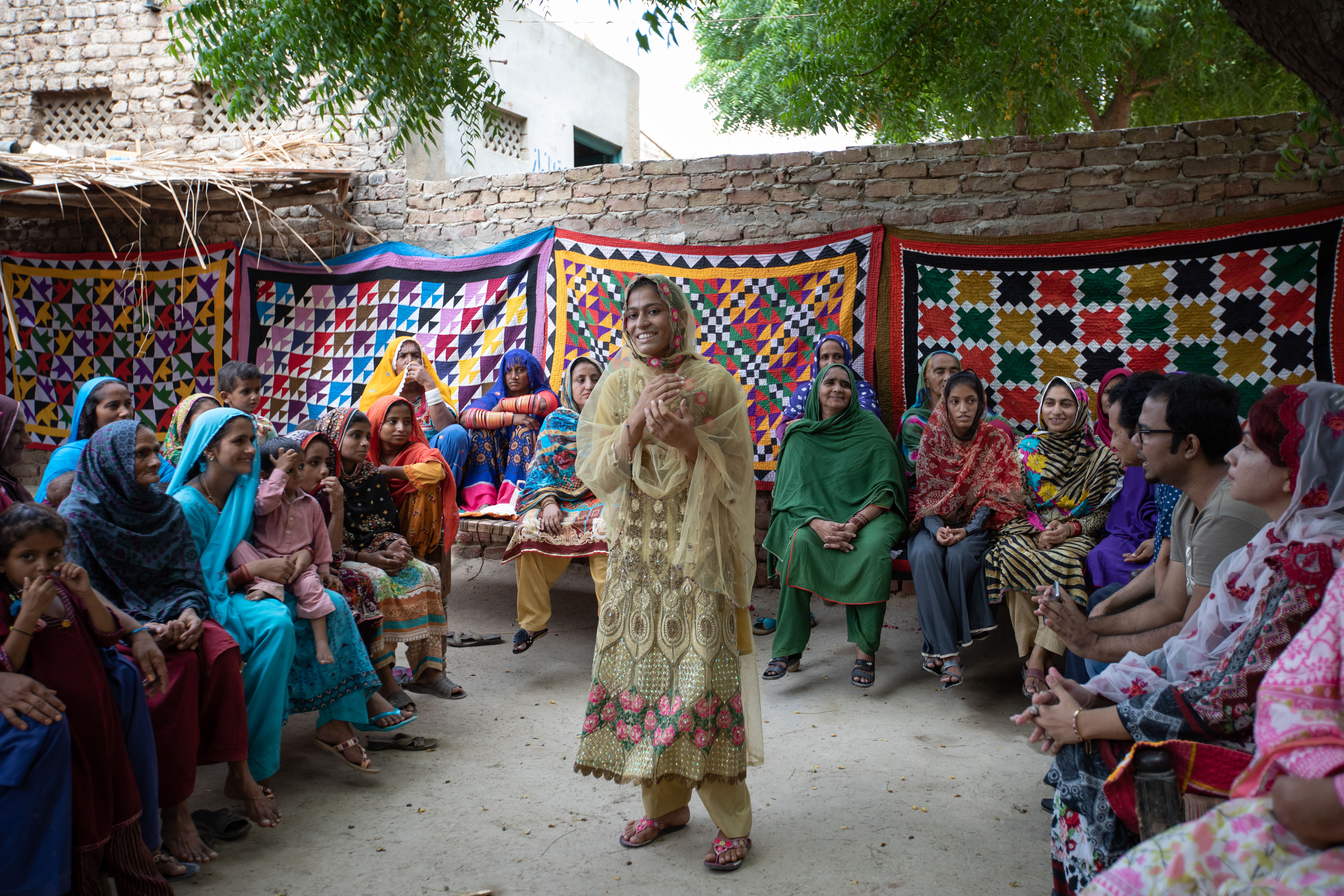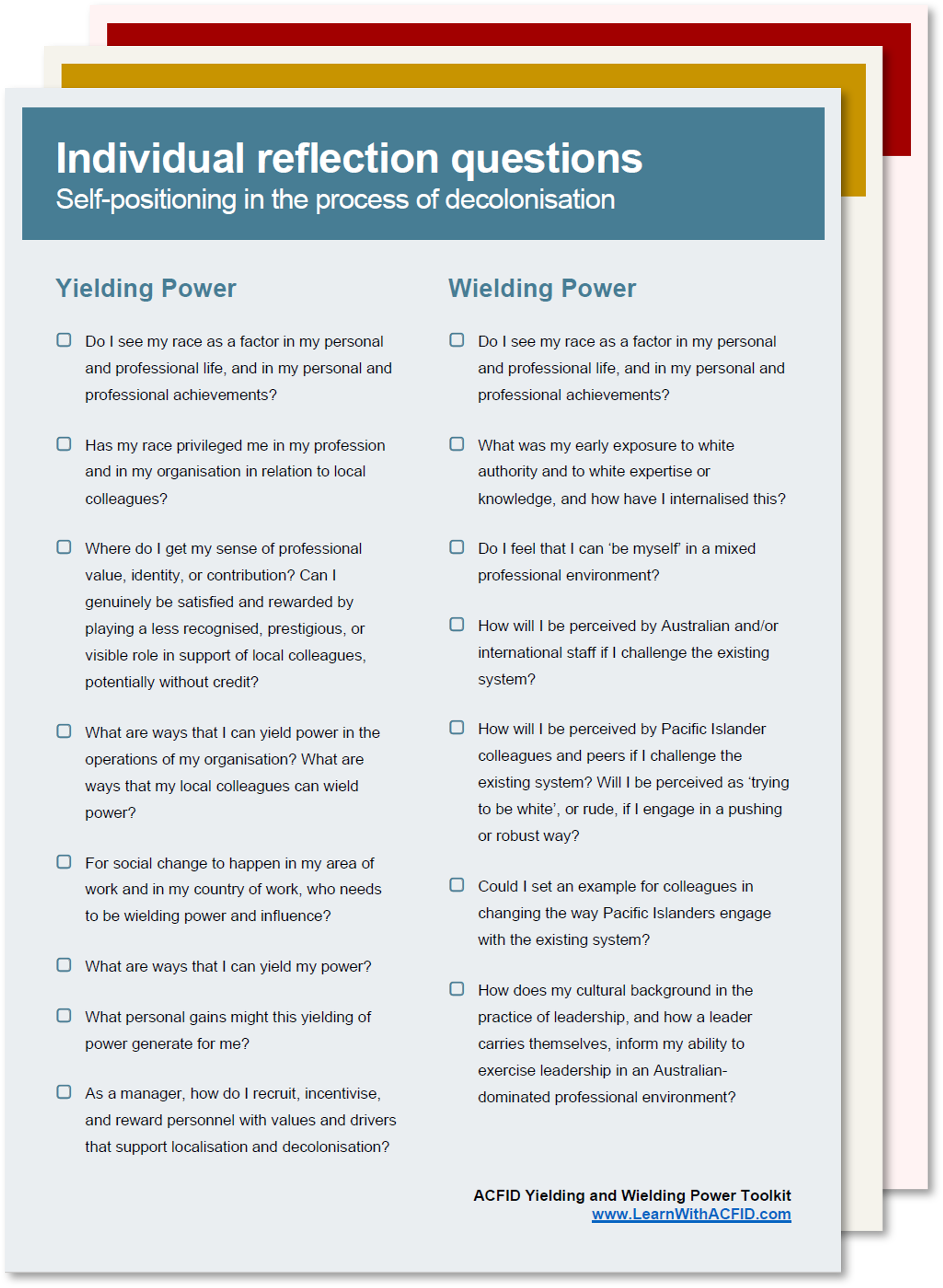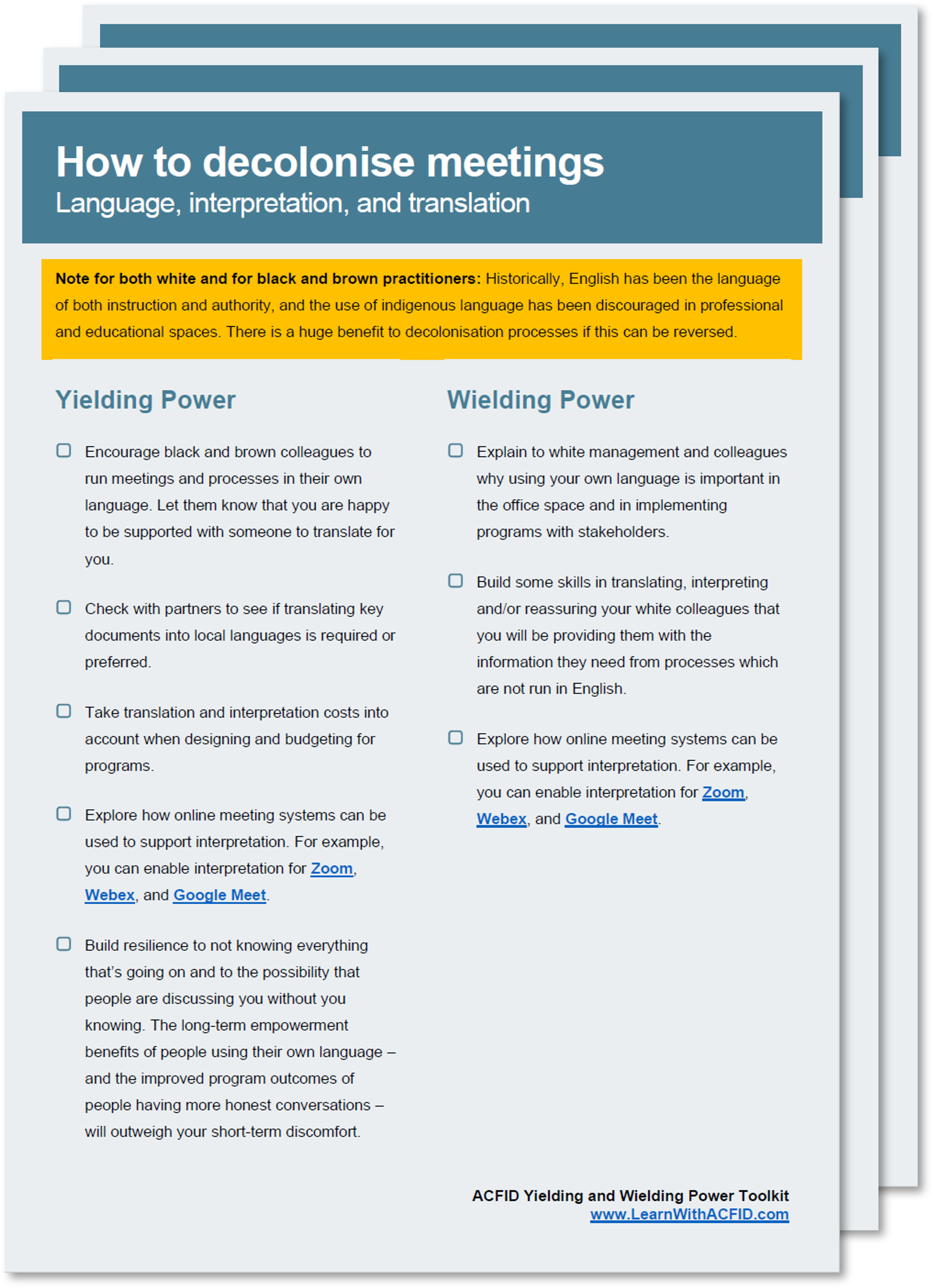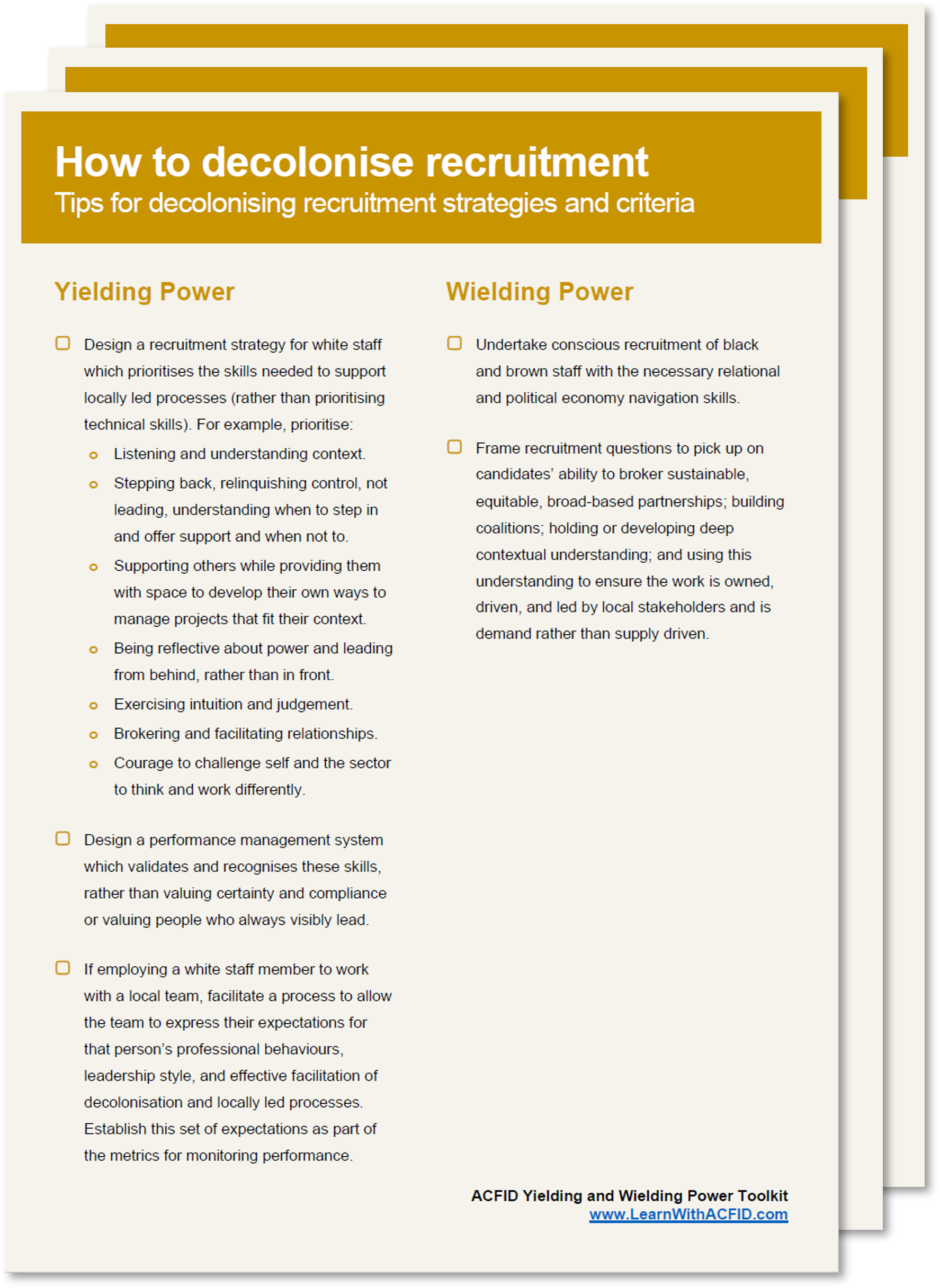Section outline
-
Welcome to the Yielding and Wielding Power Toolkit.
The Yielding and Wielding Power Toolkit is a collection of question sets and short 'how-to' guidance. The toolkit sets out practical options for individuals and organisations to further the decolonisation and locally led agendas. Every tool shares a path for Yielding Power (for white development practitioners and organisations) and a path for Wielding Power (for black and brown development practitioners and organisations). Read more about the toolkit...
The Yielding and Wielding Toolkit is drawn from the Decolonisation and Locally Led Development Discussion Paper (PDF). The paper was developed in 2021 by La Trobe University’s Institute for Human Security and Social Change. If you’re curious about any of the tools in the Yielding and Wielding Toolkit, the discussion paper is a great place to start. The paper also shares some background on producing the paper, on the use of language, and the rationale for focusing on individual and organisational change instead of systemic change.
The proposals in each tool are resented as a dual pathway -- with the changes proposed for white individuals and organisations to tackle, and the corresponding suggestions for black and brown people working with these individuals and organisations.
Many of the suggestions are not easy. For black and brown practitioners, stepping into wielding power may require having uncomfortable conversations, breaking cultural protocols, being vulnerable in new ways, and working on painful decolonisation of the mind processes. For white practitioners, yielding power may involve loss of professional identity reckoning with the deep discomfort of being part of and representative of a neo-colonial system which individuals do not personally subscribe to, and losing power, control, and authority.
Engaging in a decolonisation process, and supporting genuinely locally led organisations and programs, requires us all to be courageous and bear the discomforts and pain associated with the process, with particular regard for the discomfort and pain of black and brown colleagues who have suffered and lost the most through colonisation.
If you’re new to the toolkit, the best place to start is with the Reflection Questions for self-positioning in the process of decolonisation. You can then also explore Individual How-To Tools (from decolonising your language to decolonising your meetings) and Organisational How-To Tools (like decolonising recruitment and positioning local expertise at the head and heart of your organisation's work).
...or select a resource category below to get started.
-
Self positioning in the process of decolonisation
The Reflection Questions are for development practitioners to reflect on their personal positioning on decolonisation and locally-led action.
There is a set of reflection questions for each of the three levels of yielding and wielding power: the individual level, the organisational level, and the systemic level.
The question sets are for individuals to explore, but the greatest impact can be realised when these questions are genuinely engaged with across teams and organisations.
The hardest questions may be at the individual and organisational level; resist the temptation to only engage with the systemic level questions. Engaging in a decolonisation process, and supporting genuinely locally led organisations and processes, requires us all to be courageous and bear the discomforts associated with the process – starting with these self-positioning questions. -
Practical actions for individuals to implement and champion
The How-To tools in this section are practical options for individuals to further the decolonisation and locally led agendas in shared development work in the Pacific.
There is a range of guidance to select from: strategies for decolonising your language and your meetings, tips for having honest conversations about race, power and leadership, and ways to step away from (or into) visible leadership.
Individuals may choose to explore one or multiple strategies in the guidance, combine and adapt them, and share learning on how well they worked (or didn't). While the strategies and tips in the guidance are specific to the Pacific, much of the guidance is adaptable and useful for work in other regions. -
Practical actions for organisations to implement and embody
The How-To tools in this section are practical options for organisations to trial, adapt and implement.
The tools include strategies for decolonising recruitment, tips for starting to decolonise organisational structures and spaces, and steps for positioning local expertise at the head and heart of your organisation's work.
Organisations may choose to take up one or multiple strategies in the guidance, combine and adapt them, and share learning on how well they worked (or didn't). While the strategies and tips in the guidance are specific to the Pacific, much of the guidance is adaptable and useful for work in other regions. -
With thanks to our collaborators and networks...
The content for this toolkit was drawn from the Decolonisation and Locally Led Development Discussion Paper (PDF). The paper was commissioned by ACFID and developed by La Trobe University’s Institute for Human Security and Social Change.
The cover photo for this toolkit is courtesy of Khaula Jamil / Oxfam. In the cover image, Samreen shares her experiences of Oxfam's She Can Lead project with her community. Samreen has been involved with the She Can Lead project for 3 to 4 months. She has also attended Community Training Sessions and hopes to make positive changes in her community. Read Samreen's story.







